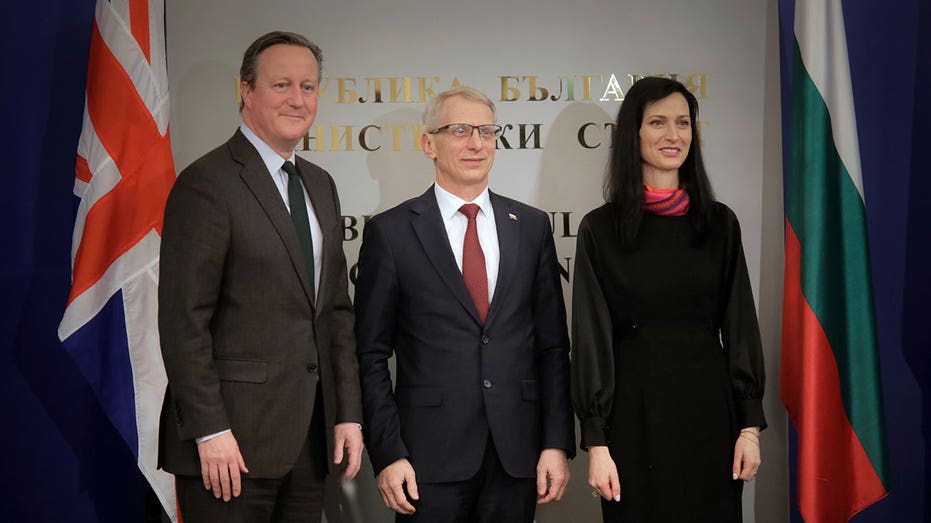British Foreign Secretary David Cameron said Wednesday that nothing is more important now than strong support for Ukraine as it fights off Russian President Vladimir Putin’s aggression.
Cameron, speaking to reporters in Sofia, said support is not just a matter for European, but also for global security.
“Putin thinks that he can outweigh us and outlast us, but we are going to prove him wrong,” Cameron said after talks with Bulgarian Prime Minister Nikolay Denkov and Foreign Minister Mariya Gabriel.
UK’S DAVID CAMERON: ‘NONSENSE’ THAT UKRAINE IS FAILING, SAYS AID BOOSTS US JOBS
After Bulgaria, Cameron will visit Poland before attending the Munich Security Conference, where he is expected to urge allies to boost defense production for Ukraine.
Discussions during Cameron’s visits will include how to strengthen Ukraine in the war now, ensure it wins if Putin prolongs hostilities, and lay the foundation for Ukraine’s long-term future, his office said.
Cameron also urged members of the U.S. Congress to approve more aid for Ukraine, noting that Britain has announced its support package for the next year, as has the European Union.
“If you add up the countries that support Ukraine, we outmatch Russia economically 25 to 1. All we have to do is to make that economic strength pay, and I hope that happens in Washington in the coming hours,” Cameron said.
FORMER UK PRIME MINISTER DAVID CAMERON MAKES SURPRISE RETURN AS SUNAK SHAKES UP CABINET
U.S. President Joe Biden on Tuesday called for House Republicans to urgently bring a $95.3 billion aid package for Ukraine, Israel and Taiwan to a vote, warning that refusal to take up the bill, passed by the Senate in the morning, would be “playing into Putin’s hands.”
Cameron will also witness joint work taking place on illegal migration in Bulgaria. This will include visiting Border Force officials in Sofia to learn about U.K.-Bulgaria cooperation aimed at disrupting the supply of small boats and other equipment destined for illegal Channel crossings.
According to British government information, up to 50% of people using the Balkans as a migration route into Europe are believed to come through Bulgaria, which has become the main transit route for equipment used to facilitate small boat crossings in the Channel.




